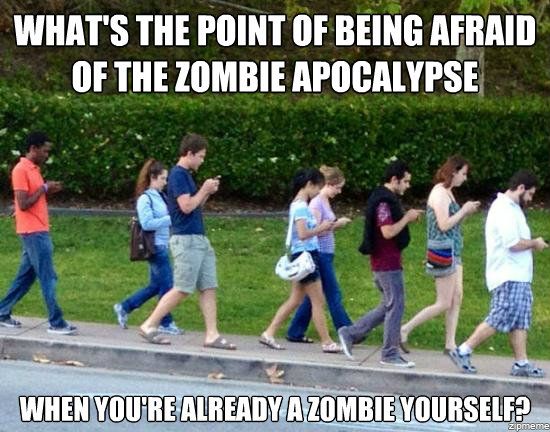A recent report from Educational Testing Service argues that millennials are falling behind students in other nations. Specifically, the study argues that demonstrate lower literacy and arithmetic skills than in other countries. Even accounting for other factors such as income, the ETS researchers found Americans scoring poorly. This begs the question: Are millennials the dumbest generation?

Nearly every generation thinks the one following them is performing poorly. However, millennials get dumped on at an alarming rate. We all know the critiques.
Entitled.
Self-centered.
Uninterested in politics and government.
Are millennials the most narcissistic generation?
The Greatest Generation saved the world in World War II. Millennials can’t be bothered to look up from their phones.
In many ways, the ETS report picks up on these arguments, but also calls out colleges for not educating students on the skills necessary for the workplace.
However, I would argue the problem isn’t with millennials or colleges, but rather the expectations and pressures put on students and colleges.
It may seem counterintuitive, but I would argue that the emphasis on vocationalism and going to college to get a job has made students less prepared for work. Students are so focused on learning the knowledge and skills to succeed in the workplace that they often don’t want to take or ignore courses that lead to their broad intellectual development.
This is most obvious in general education courses that should help students learn to think, write, and speak. Instead of using these courses to learn these valuable skills that benefit them in work and life, students try to find courses that will check multiple boxes.
And colleges are almost as bad with departments wanting to use the courses to recruit more majors knowing that is where they get rewarded.
The reality is that college should teach you how to learn, think, and process information. As a professor, I am worried far less about preparing students for their first jobs. The first job is important, but it will not ultimately determine a student’s success.
I want to make sure that we are preparing students for careers that we don’t even know exist yet. Jobs that will be created over the next 20, 30 or 40 years. I have no idea what those jobs will look like, but I know if a students can speak, write, and think that they will be prepared.
Debates about vocationalism and the liberal arts are as old as higher education in this country. Whether fighting over teaching in Latin or English or preparing students with job skills for the 21st century, students, families, and colleges will continue to struggle with the balance between learning for learning and learning for job.
We are in a period of hyper-vocationalism that in many ways parallels what higher education looked like immediately following World War II. Eventually that period of vocationalism gave way to the curricular expansion that took place in the 1960s. As they say, this too shall pass. Yet, I worry what the rhetoric around the millennial generation will do to their long term success. Already, this generation has had to grow up in the shadow of September 11th and the war on terror while at the same time facing a long term economic decline. Stagnating wages, lower home ownership, and the challenge of the global economy is all this generation as known.
Are Millennials the dumbest generation? I think the question is an insult, yet this generation has faced insult after insult. From a K-12 education system that has focused on teaching them to fill out bubbles to college that has become increasingly expensive thanks to a decline of public financial support, this generation has proven to be resilient.
Sure, they might benefit from taking a break from their phones once in a while or sharing a little less on social media. Yet, I have great faith in this generation that shows success in spite of the challenges and in spite of the way they are talked about by older generations. Given the state of our world politically, socially, and economically, I think we ought to give them a shot. Can they do any worse?
The Texas Standard, a news program sponsored by Texas public radio stations, interviewed me for a story about the ETS report. You can hear the story here.

